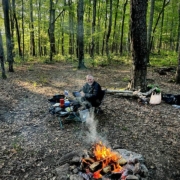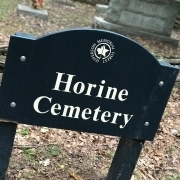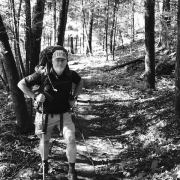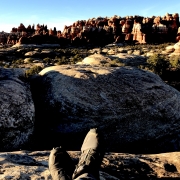The Dance with Alzheimer’s | Healthy Aging Series: S10 E6
Reflecting on: “Before I Forget: Love, Hope, Help, and Acceptance in Our Fight Against Alzheimer’s,“ by B. Smith, and Don Gasby.
I spent a week this past year helping my older son move.
I am almost 68, but a rather fit 68. All of us have helped someone move. Four days of grueling, backbreaking work. Everyone helped. Really, it was a wonderful experience. And I recovered rather well. I had a few more sore tendons in my shoulder. Not bad.
The last evening there, we were eating at a Mexican Restaurant in Woodland Park, relishing our feat. During our conversations, I told my younger son that I had mentioned something to his older brother but referred to his older brother as his father. He looked up at me and asked “who?”
I stopped, not knowing what I had said wrong. There was a brief pause, and then it occurred to me that I was his father. We all laughed. I chalked up the verbal faux pas to four days of near physical exhaustion. Your brain doesn’t work as well when your body is exhausted.
With Alzheimer’s, You Disappear
Misremembering, absentmindedness, forgetting the name of a celebrity, misplacing your keys, or momentarily forgetting which exit to take can be frustrating, but experiencing one or more of these annoyances over the course of a few months is nothing, nothing like full-blown dementia. You don’t just forget where you left your keys; you forget how to use a knife and fork, you forget where you live, you forget every person you know, you forget the trips to the Caribbean; you forget what a car key is and does. You disappear, and sadly, you aren’t aware that you’ve disappeared.
It’s All About the Engine
We’ve been on a journey this season exploring the aging brain. Since the beginning of the season, I’ve shared about traumatic brain injuries, Crystalized and Fluid Intelligence, how to exercise your brain, how to feed it, and we’ve looked at Captain James T. Kirk.
Now, I want to share a story about one of the big land mines we all potentially face. This is a story about Alzheimer’s. I read, “Before I Forget: Love, Hope, Help, and Acceptance in Our Fight Against Alzheimer’s,“ by B. Smith, and Don Gasby. This is a story about the Smith’s experience with Alzheimer’s during the early and middle stages of the disease and it describes the ways B. and her husband, Dan, coped with the disease. It was heart wrenching, and I’m glad I read it.
Alzheimer’s disease is a form of dementia that robs you of everything you are and everything that you have been. You suffer until you don’t realize that you’ve forgotten who you are. The grieving process begins at the early stages for family and caregivers. They continue to grieve even though their loved one is no longer aware that they are the person that is being grieved.
The Dance with Alzheimer’s
The book is about B. and Dan’s love, their honesty, and their fearlessness throughout this disease.
Dan continued to love what would become B’s new self as he grieved over the loss of her old self. This was a dance, not with each other, but with the disease of Alzheimer. I first want to share the dance by sharing B’s and Dan’s words, alternating dance steps.
B
I’ll tell you the biggest problem for me: trying to remember things Dan tells me. In the beginning, I felt like there were things happening, and I needed to write them down to remember them, so I did. I have a little book for that. Dan can tell me something and I might not remember it 10 minutes later. Because who wants to forget what you’re supposed to remember.
Dan
This job of caregiver, which I hadn’t signed up for, hadn’t bargained on, never anticipated, I was doing my best. But my best wasn’t good enough, not if I flared at the wife, I loved who couldn’t help herself. So that made me feel even worse: not just frazzled and tired, and very depressed, but guilty.
B
One thing I’m having trouble with these days is my handbag. I keep misplacing it. I’ll put it down in my closet somewhere, and then the next day I can’t remember where I left it. Or I go down to the basement to get something, and somehow get it down there, and Dan gets exasperated with me. I get exasperated too! But what am I supposed to do? I think I’m going to remember where it is, and then I just don’t.
Dan
Every morning, B. goes out to her little Mercedes-Benz two-seater. It’s a car I bought her some years ago as a present. Some hesitation or fear, or maybe confusion, keeps her from putting the bags in the car. Instead, she gets in and sits there, keys in hand, not quite up to starting the engine. And there remains, until I come out and tell her it’s time for dinner.
B
I don’t feel different, but I know that I am. The slightest thought makes me cry. I never cried a lot before, not much in the movies, not in real life, either. Now I cry if I hear noise and Dan’s voice, or if he tells me I’ve had another sugary midnight snack. I can’t remember. Sometimes I cry when I’m alone, for no particular reason. They say crying makes you feel better. Not with me. It just makes me feel sad all over again.
Dan
Here’s the stone cold truth: you can never truly, fully appreciate how much you love your partner until you feel you might have just lost her forever.
B
I don’t remember the doctor’s visit or Dan putting me on the bus. I don’t remember why I got off and started wandering. I do remember it was the evening, so it didn’t seem out of place. And I remember I felt good. I wasn’t scared or worried. I felt free! I was taking care of myself, having an adventure. I know that’s not a really good thing now. I know everyone was horrified and thought I was dead. I didn’t mean for everyone to worry! But sometimes you just need to be on your own.
Dan
Damn that disease. I’m no scientist; no politician either. I can’t invent a new drug nor a cure. But I can see how desperately one is needed, and maybe in my own way, I can help raise awareness, help put pressure on public and private sectors to steer more money to research and get the job done. Just keep B. happy during the time she has left, and that’s what I’m aiming for now.
B
There are rules Dan has put on me. Like no driving. No more driving! That’s hard. I’ve been driving since I was a teenager, and that white Mercedes Sports coupe in the driveway was a gift to me. “You can’t drive anymore,” says Dan. No driving for me. I get angry, but I know he’s right. I’m not going to fight that one. I’m not crazy! Just a little here and there.
Dan
The moments of dislocation and dysfunction are increasing, the ability to follow what’s said, and to do tasks that take multiple steps, all this points to the obvious, the inevitable. When those changes do occur, I hope that I’ll be able to do what I’m hoping you can do, to not lose sight of the soul within. Studies have shown that patients with this stage of Alzheimer’s hear, think, and feel, even if they seem to have vanished from the ruined bodies, they inhabit. I know I’ll be there, holding the hand of the woman I love. I guess that spirituality, too. Good luck to us all.
A Primer on Alzheimer’s
What did I learn about Alzheimer’s Dementia from this book. “Before I Forget” is a love story and it’s also a Primer on Alzheimer’s. Here are some of the lessons.
Lesson One: I learned that Alzheimer’s affects millions of people, and we need to do something about it now. Consider the numbers.
The number of Americans living with Alzheimer’s is growing — and growing fast. Nearly 7 million Americans have Alzheimer’s.
- An estimated 6.9 million Americans age 65 and older are living with Alzheimer’s in 2024. Seventy-three percent are age 75 or older.
- About 1 in 9 people age 65 and older (10.9%) has Alzheimer’s.
- Almost two-thirds of Americans with Alzheimer’s are women.
- Older Black Americans are about twice as likely to have Alzheimer’s or other dementias as older Whites.
- Older Hispanics are about one and one-half times as likely to have Alzheimer’s or other dementias as older Whites.
As the size of the U.S. population age 65 and older continues to grow, so too will the number and proportion of Americans with Alzheimer’s or other dementias. By 2050, the number of people age 65 and older with Alzheimer’s may grow to a projected 12.7 million, barring the development of medical breakthroughs to prevent or cure Alzheimer’s disease.
Lesson Two: I learned that you will slowly lose the last 10 years of your life.
Alzheimer’s comes in three stages: Early, Middle, and Late
- Early Stage: You lose your short-term episodic memory, especially to recent conversations and events, your hand-eye coordination becomes somewhat impaired, making it difficult to use eating utensils. These symptoms may bring on mood swings and depression. This stage can last from one to four years.
- Middle Stage: long-term memory loss becomes evident. Childhood recollections may fade, difficulty recognizing family members. You become unaware of current events and confused about time. You develop sleeplessness, or too much sleep, and have difficulties with hygiene and toileting. This stage can last from 2 to 10 years.
- Late Stage: There is profound memory loss and the loss of ability to communicate, and comprehend others. The need for round-the-clock help for all personal hygiene issues. You develop the inability to swallow, and you become incontinent. Delusions are common. You become immobile and unresponsive. This stage typically last from 1 to 3 years. The most common cause of death is pneumonia.
Lesson Three: I learned that as difficult and frustrating as it is to lose the last 10 years of your life, it is equally difficult for family members and loved ones to watch as their loved one slowly fades and disappears. Caregivers suffer through this 10+ year process. It is a family burden to be the primary caregivers. When, not if, you need home care it will likely cost up to $1000 a week. Insurance is not going to cover all of the home-care expenses. He/she will be there, but not be there. He/she will be a burden to you and also to your grown children.
Lesson Four: I learned that no one survives a diagnosis of Alzheimer’s. There are medications that claim to slow down the process.
Lesson Five: As of yet, they do not know what causes it.
Lesson Six: There may, and I emphasize may, be things you can do to lower your risk of developing Alzheimer’s Dementia. In a study in 2020, researchers, looked at diet and lifestyle, and how they increased or decreased risk for Alzheimer’s. One study looked at 1845 adults that were 73 and older, and the other study looked at 920 adults that were 81+, all free from Alzheimer’s. They followed them for six years. Here is what lowered the risk of Alzheimer’s was:
- Non-smoking.
- Engaged in consistent, moderate, or intense exercise.
- Limited alcohol consumption to light to moderate.
- Followed the Mediterranean Diet.
- Stayed engaged in cognitive-challenging activities.
There are no promises in life. My good friend Sam sees life as walking through a minefield. You walk through life, and you step on a mine (Alzheimer’s, cancer, stroke, fill in the blank). The real question isn’t “will you step on a mine,” but “will you recover?”
I’ve written two blogs on Resiliency in a previous season. That explains how you can prepare yourself to bounce back when you do hit one of these land mines. Is there anything that you can do to decrease your risk or prevent the devastating effect of these mines?
And the answer is maybe! I’m writing about the aging brain in this season of my Healthy Aging Blog. I’ve asserted that you can’t get along in life without a brain, and it’s important to keep your brain healthy, because every part of your body depends on your brain. So, here are my suggestions:
- Exercise every day.
- Eat lots of fruits and vegetables.
- Work out your brain by studying, writing, learning new skills that involve hand coordination.
- If you smoke, stop smoking.
- If you drink, limit your intake to light or moderate drinking, mostly red wine.













